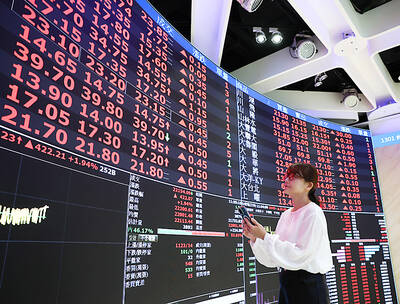Leofoo Tourism Group (六福旅遊集團) is seeking to regenerate its 47-year-old Leofoo Hotel (六福客棧) in downtown Taipei after announcing plans to shut down its flagship property, Westin Taipei (台北威斯汀六福皇宮), at the end of this year, company officials said yesterday.
The group, which also operates the Courtyard by Marriott Taipei (六福萬怡), Leofoo Resort (六福莊), Leofoo Village Theme Park (六福村) and other recreational facilities, has dropped efforts to seek an urban renewal plan for the property on Changchun Road in Zhongshan District (中山).
Review of urban renewal applications tends to be lengthy and filled with uncertainty, Leofoo communications director Anne Wang (王淺秋) said, adding that the group has decided to transform Leofoo Hotel instead.
Wang declined to provide more details.
Near Songjiang Nanjing MRT Station, Leofoo Hotel has 226 guestrooms and three restaurants that feature Chinese, Japanese and Cantonese cuisine, its Web site says.
The hotel had an occupancy rate of 75.69 percent last year with an average daily room rate of NT$1,599, according to Tourism Bureau data.
Food and beverage sales accounted for 50.39 percent of overall revenue last year, while the guestrooms generated 45.49 percent.
The hotel’s Chinese Golden Phoenix Restaurant (金鳳廳) still keeps the traditional practice of serving dim sum from carts that allow diners to select bite-sized portions of food in small steamer baskets or on small plates.
As nostalgia has a strong appeal among tourists, Leofoo Hotel is partnering with Taiwan Taxi Co (台灣大車隊) to provide accommodation packages that feature one or two nights in its classic guestrooms with taxi tours of popular attractions in Taipei’s Beitou (北投) or Jiufen (九份), and Pingsi District (平溪) in New Taipei City, Wang said.
Leofoo is also taking advantage of the Dragon Boat Festival to launch special rice dumpling gift boxes that could generate NT$9 million (US$300,401) in sales, Wang said.
“We expect to sell 10,000 gift boxes this year and believe the goal is achievable after signing a cooperation agreement with the 7-Eleven convenience store chain,” she said.

UNCERTAINTIES: Exports surged 34.1% and private investment grew 7.03% to outpace expectations in the first half, although US tariffs could stall momentum The Chung-Hua Institution for Economic Research (CIER, 中華經濟研究院) yesterday raised its GDP growth forecast to 3.05 percent this year on a robust first-half performance, but warned that US tariff threats and external uncertainty could stall momentum in the second half of the year. “The first half proved exceptionally strong, allowing room for optimism,” CIER president Lien Hsien-ming (連賢明) said. “But the growth momentum may slow moving forward due to US tariffs.” The tariff threat poses definite downside risks, although the scale of the impact remains unclear given the unpredictability of US President Donald Trump’s policies, Lien said. Despite the headwinds, Taiwan is likely

READY TO BUY: Shortly after Nvidia announced the approval, Chinese firms scrambled to order the H20 GPUs, which the company must send to the US government for approval Nvidia Corp chief executive officer Jensen Huang (黃仁勳) late on Monday said the technology giant has won approval from US President Donald Trump’s administration to sell its advanced H20 graphics processing units (GPUs) used to develop artificial intelligence (AI) to China. The news came in a company blog post late on Monday and Huang also spoke about the coup on China’s state-run China Global Television Network in remarks shown on X. “The US government has assured Nvidia that licenses will be granted, and Nvidia hopes to start deliveries soon,” the post said. “Today, I’m announcing that the US government has approved for us

When Lika Megreladze was a child, life in her native western Georgian region of Guria revolved around tea. Her mother worked for decades as a scientist at the Soviet Union’s Institute of Tea and Subtropical Crops in the village of Anaseuli, Georgia, perfecting cultivation methods for a Georgian tea industry that supplied the bulk of the vast communist state’s brews. “When I was a child, this was only my mum’s workplace. Only later I realized that it was something big,” she said. Now, the institute lies abandoned. Yellowed papers are strewn around its decaying corridors, and a statue of Soviet founder Vladimir Lenin

The National Stabilization Fund (NSF, 國安基金) is to continue supporting local shares, as uncertainties in international politics and the economy could affect Taiwanese industries’ global deployment and corporate profits, as well as affect stock movement and investor confidence, the Ministry of Finance said in a statement yesterday. The NT$500 billion (US$17.1 billion) fund would remain active in the stock market as the US’ tariff measures have not yet been fully finalized, which would drive international capital flows and global supply chain restructuring, the ministry said after the a meeting of the fund’s steering committee. Along with ongoing geopolitical risks and an unfavorable